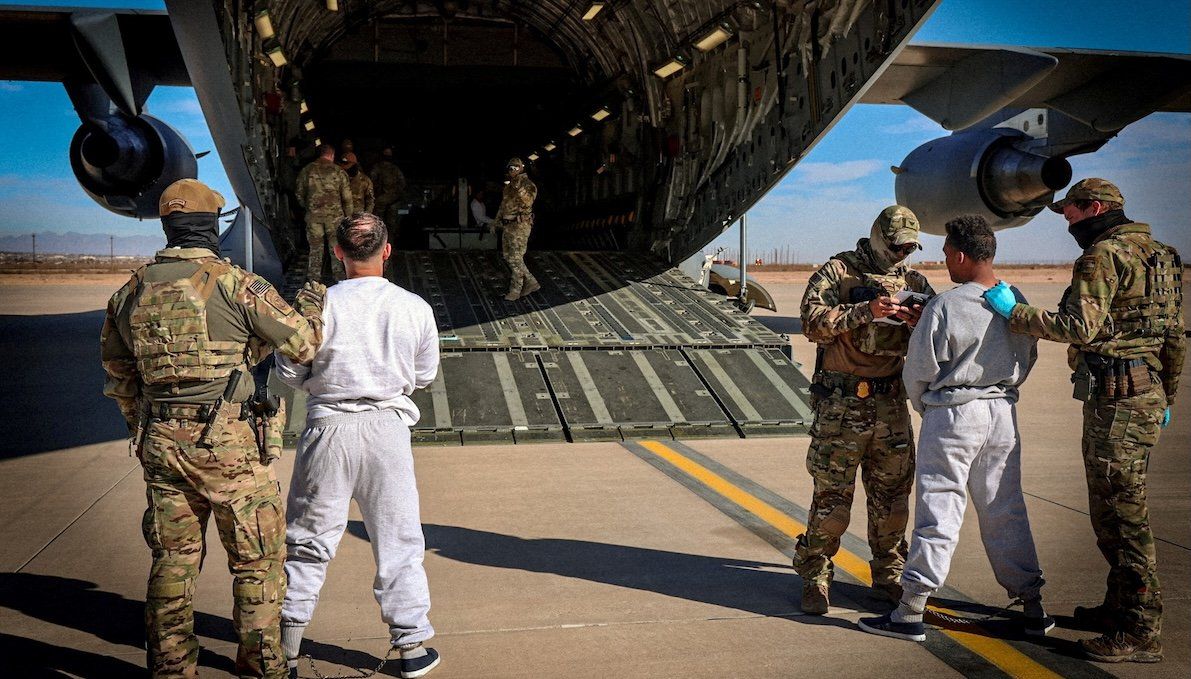On Sunday, Judge Kenneth J. Gonzales of the Federal District Court for New Mexico granted a temporary restraining order on jurisdictional grounds barring three Venezuelan men from being moved to the US military base at Guantánamo Bay.
It’s the first legal challenge to the Trump administration’s plan to use the base – best known as a prison holding detainees from the “War on Terror” – to house non-citizens to be deported. So far, around 50 people, all believed to be men, have been moved to the base from the US. But the agencies overseeing the flights and detentions haven’t released critical information about the people being held, including their identities or the status of their immigration cases.
The three men, Abrahan Barrios Morales, Luis Perez Parra, and Leonel Rivas Gonzales, all scheduled for deportation since 2023, have been held at the Otero County Processing Center in New Mexico since November 2023. They are part of a case challenging their indefinite detention at the center, a case that is also being overseen by Judge Gonzales.
“There’s only one purpose to bring [migrants] to Guantánamo,” Seton Hall law professor Jonathan Hafetz says. “To try to extinguish or limit rights that [migrants] have; to have greater secrecy, and fewer protections for migrants.”
This is not the first time that migrants hoping to settle in the US have been held at the base. But the earlier cases differ from those under Trump’s policy because they never made it to the US in the first place; migrants held at Guantánamo were typically coming from Haiti or Cuba and interdicted before they could get to the mainland. Trump is sending people already in the US to Guantánamo, which migrants and advocates see as a legal black hole.
The “War on Terror” made Guantánamo synonymous with human rights abuses and indefinite detention. And while there have been significant legal battles over the “War on Terror” detainees’ constitutional rights, Hafetz says the current situation is more clear-cut.
“Anyone who’s in the United States – and even if they're moved out – you cannot take away someone’s constitutional rights by moving them into an offshore prison,” he says. Furthermore, ICE has no congressional authority to hold migrants at the base; there’s no legal foundation for the plan, according to Hafetz.
Thus far, there are no legal challenges to the new administration’s policy – the lack of information about who’s been moved makes that difficult. But the American Civil Liberties Union and other legal aid and human rights groups have requested immediate access to and information about the people being held there, indicating that bigger legal challenges are coming.
